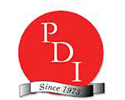WaterCop is an Automatic Water Shutoff System that helps homeowners be protected from potential water damage. The system works 24/7 to protect the home from floods. The WaterCop system works with wired and wireless flood sensors, wall switches, and most home security and home automation systems.
The Benefits WaterCop Systems to Home-Owners
There are many benefits of the WaterCop system, including overall property protection around the clock, even when you’re not home. It gives you the ability to relax and not worry about potential costs associated with water damage. Flood damage and losses related to plumbing problems can lead to higher home insurance costs and possibly the loss of affordable coverage altogether.
“WaterCop offers a complete line of residential leak detection systems that are easy to install. There are no plastic parts inside our automatic shut-off valves, they are made with industrial grade materials and are built to last. Be sure to check with your insurance provider for available discounts when you install a WaterCop system.”
The WaterCop Systems works by using the automatic shut-off valve on the water supply line. The sensors then detect a leak, even if it’s only a few ounces, and send a signal to the automatic shut-off valve.
The WaterCop System can be used on washing machines, sinks, water heaters, toilets, and dishwashers. It also works on refrigerators, spigots and automatic humidifiers. It can be installed in single-family homes, multi-family residences, vacation/rental homes, or even senior living centers. It can also be installed in offices, dormitories or laundry businesses.
Contact Metro Water Filter for more information installing your own WaterCop system.































